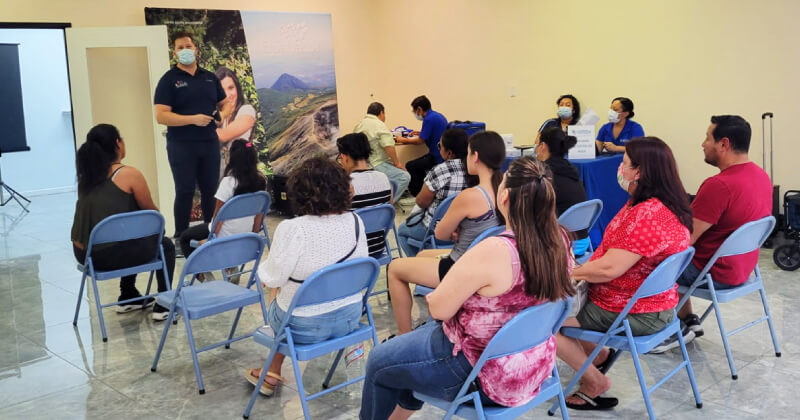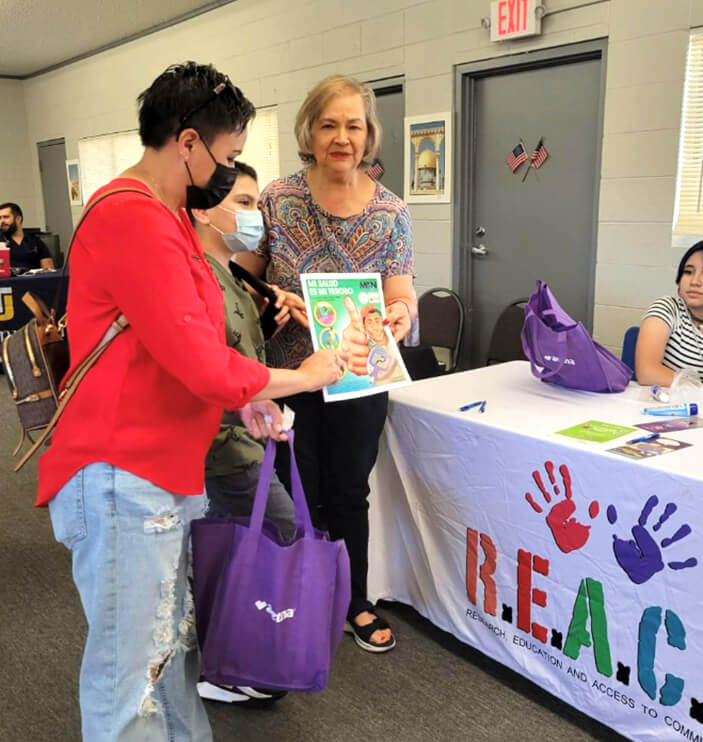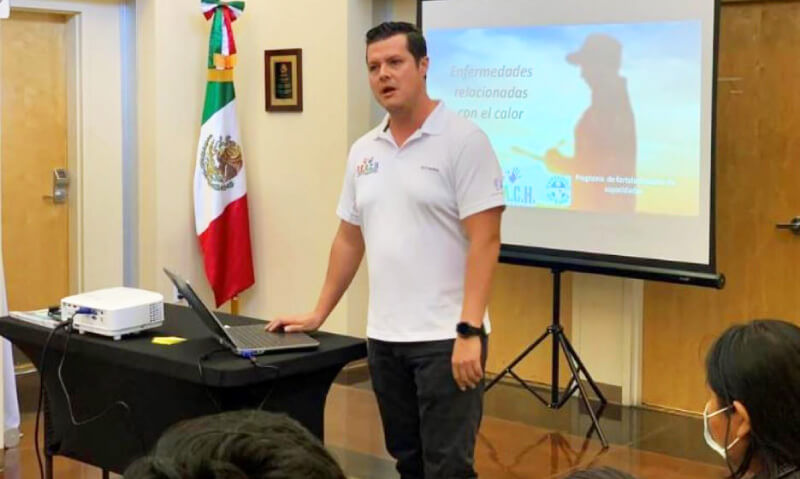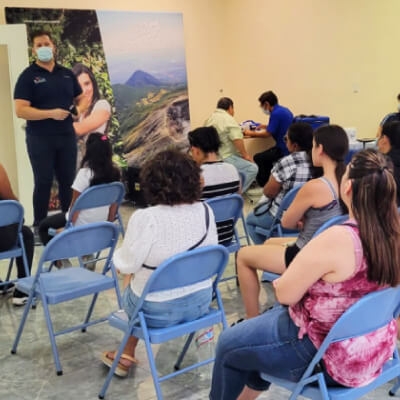Breaking Myths about Occupational Health and More, with REACH and the VdS in Las Vegas, NV

[Editor's note: The Aceves Zaragoza family -- siblings Rebeca, Oscar, and Luis -- is responsible for the operation and management of Research, Education, and Access for Community Health (REACH), a non-profit organization that since 2011 provides education, referrals, and health services to the Hispanic community and the community in general in Nevada, and since February 2011 is the fiscal agency to the Ventanilla de Salud of Las Vegas, within the Consulate General of Mexico in Las Vegas, Nevada.]
The tourism, casino, and entertainment industries provide more than 139,000 jobs to Hispanics in the state of Nevada, and in this extremely hot environment, heat stress can quickly become a life-and-death situation for workers. Many workers do not know what to do in case they experience symptoms and even more do not know about their rights in case of suffering from heat stress at work. In a recent training, one participant explained that he thought alcohol was helpful against heat stress, a dangerous suggestion that could further put workers' health at risk. But what can workers do, and what does the Occupational Safety and Health Administration (OSHA) say about labor law responsibilities? That's where REACH took the opportunity to further address occupational health issues to help workers clear up myths and stay safe in their jobs.

To better serve migrants in the community, REACH once again partnered with Migrant Clinicians Network, through The Susan Harwood's Worker Health and Safety Capacity Building project to provide the community with the education, training, and empowerment needed to maintain their health and safety during their working hours. Luis Aceves said, in addition to breaking down myths and barriers that may exist due to immigration status and language, we inform our community in the best way to empower them. During the implementation of the project, we have reached more than 250 workers with topics such as safety with the use of chemicals and heat-related illnesses, and we have been surprised by the number of myths that exist in our community, and that sometimes become theoretical truths, such as, for example, the use of alcohol to recover from heat stroke.”
"That was one of the greatest myths that we have tried to demystify, thanks to the Susan Harwood Training Program, because we were able to understand the barriers that contribute to this myth and that can increase risks and [reduce] occupational safety – and then providing the necessary information to break those barriers,” Luis said. “Another thing that caught our attention is that our community believes that they do not have the same rights as other workers due to the various barriers they face, such as language, and the lack of knowledge about their labor rights. That is why this project and its materials are so important, because they have given us the opportunity to contribute a little to the balance of equality, allowing us to reach the community and improve knowledge about occupational safety in their language.”

Oscar Aceves giving a seminar about heat related illnesses.
Through the various programs that operate in the state of Nevada and thanks to the support of MCN, REACH has been able to provide training and education in Spanish for the Latinx community.
“Not everything has been easy,” Luis clarified. “We have faced several challenges, such as having to improvise by providing online sessions due to new waves of COVID-19. But the enthusiasm and interest of the participants in the sessions motivated us to continue.”
Although MCN and our partners have been very successful, we still have a lot to do and share in terms of safety and workers' rights and responsibilities. Our next sessions will focus on outreach to areas located in northern Nevada to continue to make a positive impact in the Hispanic community. The workers who have participated in our workshops have been surprised to know that there are materials, sessions, rights, and benefits for workers regardless of their immigration status, color, race.
REACH, through their partnership with the VdS and with the support of MCN, we will continue to work for the empowerment of Nevada's migrant workers.
About the Aceves family:
The Aceves Zaragoza family are originally from Guadalajara Jalisco, as a migrant family they have found the opportunity to reach out to people who, like them, at some point needed support to access health services. REACH has allowed the Aceves to become the family of many migrants who have approached the various headquarters, activities, and mobile clinics to seek solutions to the health needs faced by Hispanics in Nevada.
Learn more about REACH: http://www.reachlv.org/index.php/en-us/
- Log in to post comments
